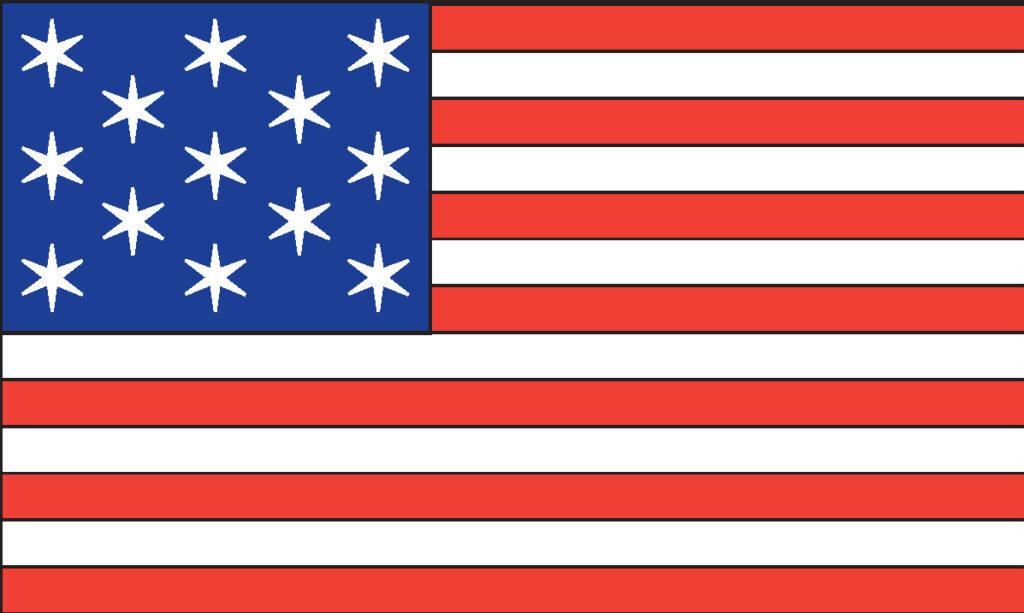The Constitutional Ratification Convention of North Carolina votes (YEA, 194; NAY, 77) to ratify the proposed Constitution for the united States—with 20 provisions for a declaration of rights, numbers one, four, five, seven, eight, nine, 11, 13, 14, 15, 16, 17, 18, 19 and 20 of which state:
- That there are certain natural rights of which men, when they form a social compact, cannot deprive or divest their posterity, among which are the enjoyment of life, and liberty, with the means of acquiring, possessing, and protecting property, and pursuing and obtaining happiness and safety.
- That no man or set of men are entitled to exclusive or separate public emoluments or privileges from the community, but in consideration of public services; which not being descendible, neither ought the offices of magistrate, legislator or judge, or any other public office to be hereditary.
- That the legislative, executive and judiciary powers of government should be separate and distinct, and that the members of the two first may be restrained from oppression by feeling and participating the public burthens, they should at fixed periods be reduced to a private station, return into the mass of the people; and the vacancies be supplied by certain and regular elections; in which all or any part of the former members to be eligible or ineligible, as the rules of the Constitution of Government, and the laws shall direct.
- That elections of Representatives in the legislature ought to be free and frequent, and all men having sufficient evidence of permanent common interest with, and attachment to the community, ought to have the right of suffrage: and no aid, charge, tax or fee can be set, rated, or levied upon the people without their own consent, or that of their representatives, so elected, nor can they be bound by any law, to which they have not in like manner assented for the public good.
- That all power of suspending laws, or the execution of laws by any authority: without the consent of the representatives, of the people in the Legislature, is injurious to their rights, and ought not to be exercised.
- That in all capital and criminal prosecutions, a man hath a right to demand the cause and nature of his accusation, to be confronted with the accusers and witnesses, to call for evidence and be allowed counsel in his favor, and to a fair and speedy trial by an impartial jury of his vicinage, without whose unanimous consent he cannot be found guilty (except in the government of the land and naval forces) nor can he be compelled to give evidence against himself.
- That no freeman ought to be taken, imprisoned, or disseized of his freehold, liberties, privileges or franchises, or outlawed or exiled, or in any manner destroyed or deprived of his life, liberty, or property but by the law of the land.
- That in controversies respecting property, and in suits between man and man, the ancient trial by jury is one of the greatest securities to the rights of the people, and ought to remain sacred and inviolable.
- That excessive bail ought not to be required, nor excessive fines imposed, nor cruel and unusual punishments inflicted,
- That every freeman has a right to be secure from all unreasonable searches, and seizures of his person, his papers, and property: all warrants therefore to search suspected places, or seize any freeman, his papers or property, without information upon oath (or affirmation of a person religiously scrupulous of taking an oath) of legal and sufficient cause, are grievous and oppressive, and all general warrants to search suspected places, or to apprehend any suspected person without specially naming or describing the place or person, are dangerous and ought not to be granted.
- That the people have a right peaceably to assemble together to consult for the common good, or to instruct their representatives; and that every freeman has a right to petition or apply to the Legislature for redress of grievances.
- That the people have a right to freedom of speech, and of writing and publishing their sentiments; that the freedom of the press is one of the greatest bulwarks of Liberty, and ought not to be violated.
- That the people have a right to keep and bear arms; that a well regulated militia composed of the body of the people, trained to arms, is the proper, natural and safe defence of a free state. That standing armies in time of peace are dangerous to Liberty, and therefore ought to be avoided, as far as the circumstances and protection of the community will admit; and that in all cases, the military should be under strict subordination to, and governed by the civil power.
- That no soldier in time of peace ought to be quartered in any house without the consent of the owner, and in time of war in such manner only as the Laws direct
- That any person religiously scrupulous of bearing arms ought to be exempted upon payment of an equivalent to employ another to bear arms in his stead.
- That religion, or the duty which we owe to our Creator, and the manner of discharging it, can be directed only by reason and conviction, not by force or violence, and therefore all men have an equal, natural and unalienable right to the free exercise of religion according to the dictates of conscience, and that no particular religous sect or society ought to be favoured or established by law in preference to others.
And 26 proposed amendments numbers one, two, eight, 11, 12, 18, 19, 22, 23 and 25 of which state:
- THAT each state in the union shall, respectively, retain every power, jurisdiction and right, which is not by this constitution delegated to the Congress of the United States, or to the departments of the Federal Government.
- That there shall be one representative for every 30.000, according to the enumeration or census, mentioned in the constitution, until the whole number of representatives amounts to two hundred; after which, that number shall be continued or increased, as Congress shall direct, upon the principles fixed in the constitution, by apportioning the representatives of each state to some greater number of people from time to time, as population encreases.
- That no navigation law, or law regulating commerce shall be passed without the consent of two-thirds of the members present in both houses.
- That each state, respectively, shall have the power to provide for organizing, arming and disciplining its own militia whensoever Congress shall omit or neglect to provide for the same. That the militia shall not be subject to martial law, except when in actual service in time of war, invasion or rebellion: And when not in the actual service of the United States, shall be subject only to such fines, penalties, and punishments as shall be directed or inflicted by the laws of its own state.
- That Congress shall not declare any state to be in rebellion without the consent of at least two-thirds of all the members present of both houses.
- That those clauses which declare that Congress shall not exercise certain powers, be not interpreted in any manner whatsoever to extend the powers of Congress; but that they be construed either as making exceptions to the specified powers where this shall be the case, or otherwise, as inserted merely for greater caution.
- That the laws ascertaining the compensation of senators and representatives for their services be postponed in their operation, until after the election of representatives immediately succeeding the passing thereof, that excepted, which shall first be passed on the subject,
- That Congress erect no company of merchants with exclusive advantages of commerce.
- That no treaties which shall be directly opposed to the existing laws of the United States in Congress assembled, shall be valid until such laws shall be repealed, or made conformable to such Treaty; nor shall any Treaty be valid which is contradictory to the constitution of the United States.
- That Congress shall not directly or indirectly, either by themselves or thro’ the judiciary, interfere with any one of the states in the redemption of paper money already emitted and now in circulation, or in liquidating and discharging the public securities of any one of the states: But each and every state shall have the exclusive right of making such laws and regulations for the above purposes as they shall think proper.
This makes North Carolina the 12th State to secede from the Confederation, leaving Rhode Island and Providence Plantations alone, outside the Union.
[restored 12/14/2024]
Subsequent Events:
Authority:
References:
“Chronology of Events, 1774-1804,” from The Debate on the Constitution, two volumes, Bernard Bailyn, ed., (New York: Library of America, 1992), 2:1072.
Avalon Project – Ratification of the Constitution by the State of North Carolina; November 21, 1789
avalon.law.yale.edu/18th_century/ratnc.asp


